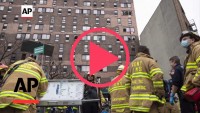
 NEWS
NEWS
0.8 Min. Viewed | 197K Imp
FDNY Union Touts Bronx Building Rescue | AP
Providing publishers with an
engagement-based unit that
recommends users video content
they love, automatically skipping
content they don’t interact with.

When a user is shown a video that
interests them, they are more likely
to
stay on the page longer, thereby
bringing in more revenue.
Every event counts,
optimizing engagement
to
reach 3.75% engaged users


 NEWS
NEWS

 CULTURE
CULTURE

 GAMING
GAMING

 BUSINESS
BUSINESS
These videos kept
people on site and drove
the
most consumption over the past week
Create and fill 6.8B pre-roll
opportunities every month
Create and fill 6.8B pre-roll
opportunities every month